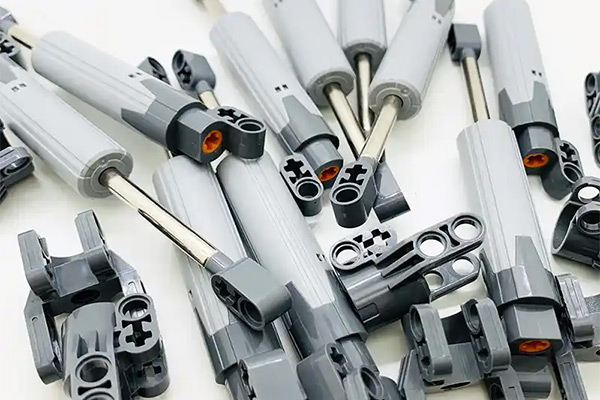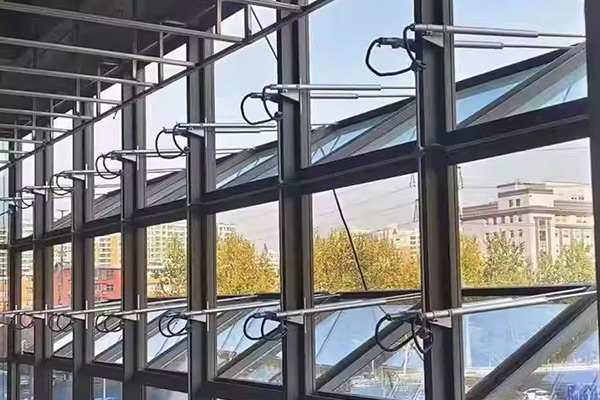Hydraulic System Alternatives for Agricultural Machinery: The Application of Electric Linear Actuators in Agricultural Machinery
Modern agriculture is moving towards automation and intelligence, bringing the power systems of agricultural machinery into sharp focus. For a long time, hydraulic systems have been the core technology driving agricultural machinery due to their high power density and reliability. However, the inherent drawbacks of hydraulic systems are becoming increasingly apparent, such as high energy consumption, high maintenance costs, environmental pollution risks, and complex design and installation. With technological advancements, electric linear actuators are emerging as a promising alternative, showing significant potential in the agricultural machinery sector. This article will delve into the application of electric linear actuators in agricultural machinery and discuss their numerous advantages as a replacement for hydraulic systems.
Challenges Faced by Traditional Hydraulic Systems
In various agricultural machines like tractors, harvesters, and seeders, hydraulic systems are widely used for lifting, steering, differential locks, and controlling various attachments. While hydraulic systems can provide powerful thrust and precise control, their disadvantages are increasingly evident:
● Low Energy Efficiency: Hydraulic systems incur significant energy losses during the energy conversion process, leading to increased fuel consumption and higher operating costs.
● Complex and Costly Maintenance: Leaks and contamination of hydraulic fluid, along with complex piping and seals, require frequent inspection and maintenance, leading to increased downtime and expenses.
● Environmental Impact: Hydraulic fluid leaks can pollute soil and water sources, which contradicts the principles of sustainable development.
● System Complexity: Hydraulic systems are composed of multiple components such as pumps, valves, cylinders, pipelines, and reservoirs, making the design and installation process complex and increasing production difficulty.
● Noise: Hydraulic pumps and actuators generate significant noise during operation, affecting the operator's working environment.
The Rise and Advantages of Electric Linear Actuators
Electric linear actuators convert electrical energy directly into linear motion, offering a cleaner and more efficient power solution for agricultural machinery. They are demonstrating strong competitiveness in many applications traditionally dominated by hydraulic systems.
Key Advantages of Electric Linear Actuators:
1. High Energy Efficiency: Electric linear actuators convert electrical energy directly into mechanical energy, with significantly higher energy conversion efficiency than hydraulic systems, leading to substantial reductions in energy consumption and operating costs.
2. Environmental Friendliness: With no hydraulic fluid required, the risk of leaks is completely eliminated, making them more environmentally friendly and aligning with green agriculture trends.
3. Simplified Design and Installation: Electric actuators are typically compact, all-in-one designs that do not require complex piping, pump stations, or hydraulic reservoirs. This significantly simplifies mechanical design and installation processes.
4. Precise Control and Programmability: Electric linear actuators, controlled by motors, can achieve sub-millimeter precision in position control. Furthermore, they can be programmed via software to perform more complex automation functions, such as automatically adjusting seeding depth or spray angles, thereby enhancing operational accuracy.
5. Low Maintenance: Electric actuators usually feature a maintenance-free design, reducing the need for regular inspections and component replacements, which lowers downtime and long-term operating costs.
6. Low Noise: Electric actuators operate with much less noise than hydraulic systems, significantly improving the operator's working environment.
7. Integration Capability: They can be easily integrated with existing electronic control systems (such as CAN bus), enabling higher levels of automation and remote monitoring, laying the foundation for smart agricultural machinery.
Specific Applications of Electric Linear Actuators in Agricultural Machinery
With their unique advantages, electric linear actuators have broad application prospects in various aspects of agricultural machinery:
● Seeders: Precisely control seeding depth and row spacing to ensure uniform crop growth and improve seeding efficiency. For example, replacing hydraulic cylinders to lift or lower seeding units or adjust furrow opener angles.
● Sprayers: Precisely adjust boom height and spray angles, reducing pesticide waste and enabling precision application.
● Harvesters: Adjust header height, guide plate position, or cleaning sieve angle to adapt to different crops and harvesting conditions, optimizing harvesting effectiveness.
● Fertilizer Spreaders: Precisely control fertilization amount and position, preventing over-fertilization or under-fertilization and improving fertilizer utilization efficiency.
● Forestry Machinery: Control the extension and angle of grapples, sawheads, or pruning tools, increasing operational flexibility and safety.
● Greenhouse Automation: Used to control the opening and closing of ventilation windows, shade nets, irrigation valves, and other equipment, enabling intelligent environmental control to provide optimal growing conditions for crops.
● Tractor Attachments: Control the three-point hitch system, auxiliary hydraulic outputs, or other agricultural implements for positioning and operation, enhancing the tractor's versatility.
Challenges and Future Outlook
Despite the numerous advantages of electric linear actuators in agricultural machinery, some challenges remain. For instance, in applications requiring extremely high thrust or continuous heavy loads, hydraulic systems may still offer superior performance in the short term. Additionally, the durability, dust and water resistance, and performance of electric actuators in extreme temperatures need continuous optimization and validation for the demanding working environments of agricultural machinery.
Looking ahead, with continuous advancements in battery technology, motor efficiency, and control algorithms, electric linear actuators, including higher thrust versions, will play an increasingly vital role in agricultural machinery. They will not only effectively replace traditional hydraulic systems but also empower smarter, more efficient, and more environmentally friendly future agricultural machinery, contributing to sustainable agricultural development. Electrification is an irreversible trend in agricultural machinery development, promising revolutionary changes in agricultural production.
-

Hydraulic System Alternatives for Agricultural Machinery: The Application of Electric Linear Actuators in Agricultural Machinery
-

Hydraulic System Alternatives for Agricultural Machinery: The Application of Electric Linear Actuators in Agricultural Machinery
-

Hydraulic System Alternatives for Agricultural Machinery: The Application of Electric Linear Actuators in Agricultural Machinery
-

Hydraulic System Alternatives for Agricultural Machinery: The Application of Electric Linear Actuators in Agricultural Machinery

